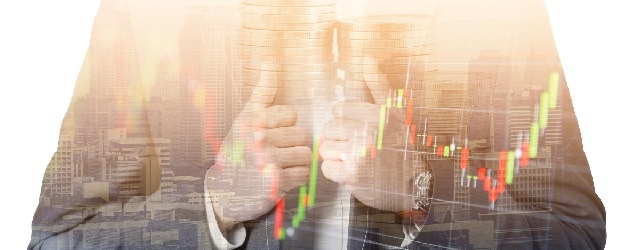A bleak feeling looms over the upper class as the coronavirus pandemic drags on.

Whoever has been driving the exuberant stock market rebound from the dire days of March, it doesn’t seem to be high-net-worth individuals. The rich are pessimistic, half a year into the coronavirus pandemic—and getting more so, according to data from US-based consultant Spectrem Group. Concern about Covid-19’s economic impact among its 730 survey respondents hit 85 on a scale of 100 in May, up from 70 in March. Most expect their personal finances to be the same or worse a year from now. Just 8% see markets regaining prepandemic levels before the US presidential election in November, among other worries.
Globally, the affluent’s sentiment is no better, according to Michael Sonnenfeldt, founder of the millionaires’ peer group Tiger 21. “Cash became king for members positioning for a worst-case scenario,” he said in a recent interview with Authority magazine. “It is hard to characterize anything as an investment opportunity right now.”
That puts private bankers, who rely considerably on investment commissions, in a tough spot. Granted, clients haven’t given in to panic selling. But their predominant reaction to whipsawing statistics and headlines seems to be deer-in-the-headlights paralysis. More than 60% of Spectrem’s respondents report no changes in their portfolios since the virus became big news during the winter.
One consolation is that clients are mulling dramatic changes in their personal lives, about which bankers might usefully advise. The multijurisdictional, citizen-of-the-world lifestyle of the super-rich has gone sharply out of vogue as the pandemic renders globe-trotting hazardous, if not impossible. “Deglobalization is a trend that is here to stay,” says Michael Crook, head of Americas Investment Strategy at UBS Global Wealth Management.
Affluent Chinese families are keeping youngsters at home rather than send them to US schools or colleges. Rich Europeans are axing plans for that beach villa in Thailand. Remote resorts are in, and popular destination cities are out, as clients realize how much they can do germ-free from home. “Jackson Hole comes up a lot,” says Crook, referring to the Eden-esque nook in the Wyoming mountains.
Another comfort for bankers is that upscale investors can’t stay on the sidelines forever. Once upon a time, the rich would have retreated to clipping bond coupons after a bout of stock volatility. That option is off the table now, Crook says. “The biggest thing they need to think about is that safe assets will not produce a yield above inflation for the foreseeable future,” he explains. “I don’t believe most investors have started that process.”
Not that the well-to-do are inclined to jump into stocks either. Tiger 21’s Sonnnenfeldt says his members keep their public equity exposure around 20%, and that isn’t about to change. The enthusiasm gap has been filled by private equity, which has climbed from 10% to 24% of members’ portfolios over the past decade and may present juicier opportunities as the Covid-19 recession bites, he states. “Our members will tend to stay with the small to midsize companies where they can invest directly and make a difference,” he says. “They tend not to be stock pickers.”
The bond drought may revive some interest in hedge funds, which have fallen from grace since their heyday before the 2008 financial crash, Crook thinks. “Clients are grudgingly rethinking their hedge fund exposure,” he says. “Hedge funds have disappointed, but a 3% return is still better than zero.”
Writ large, though, the rich—for once—are more or less like the rest of us as the coronavirus pandemic lingers and morphs into the second half of 2020: cautious, chastened, sticking much closer to home. “We recommend setting aside three to five years of spending at all times to avoid panic selling,” Crook says.
That’s a luxury the non-rich can hardly afford but would probably welcome.



